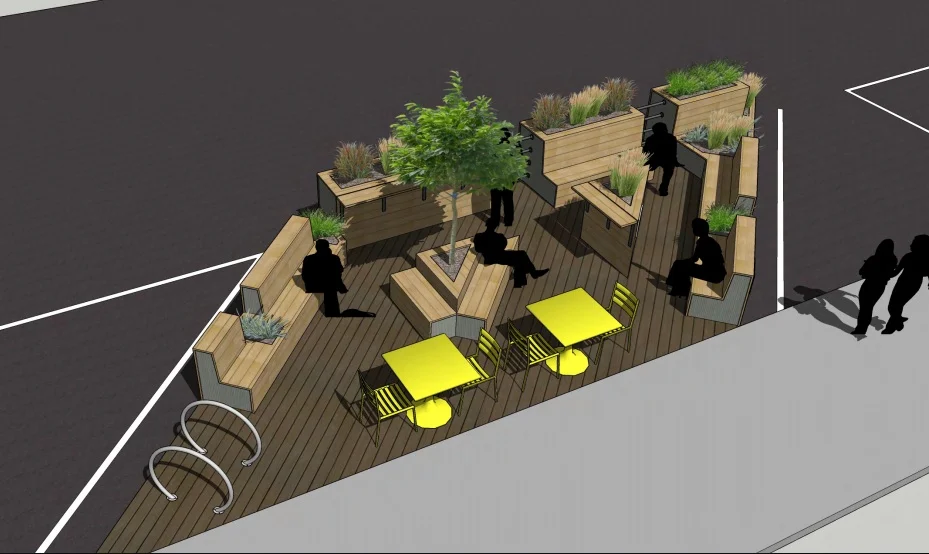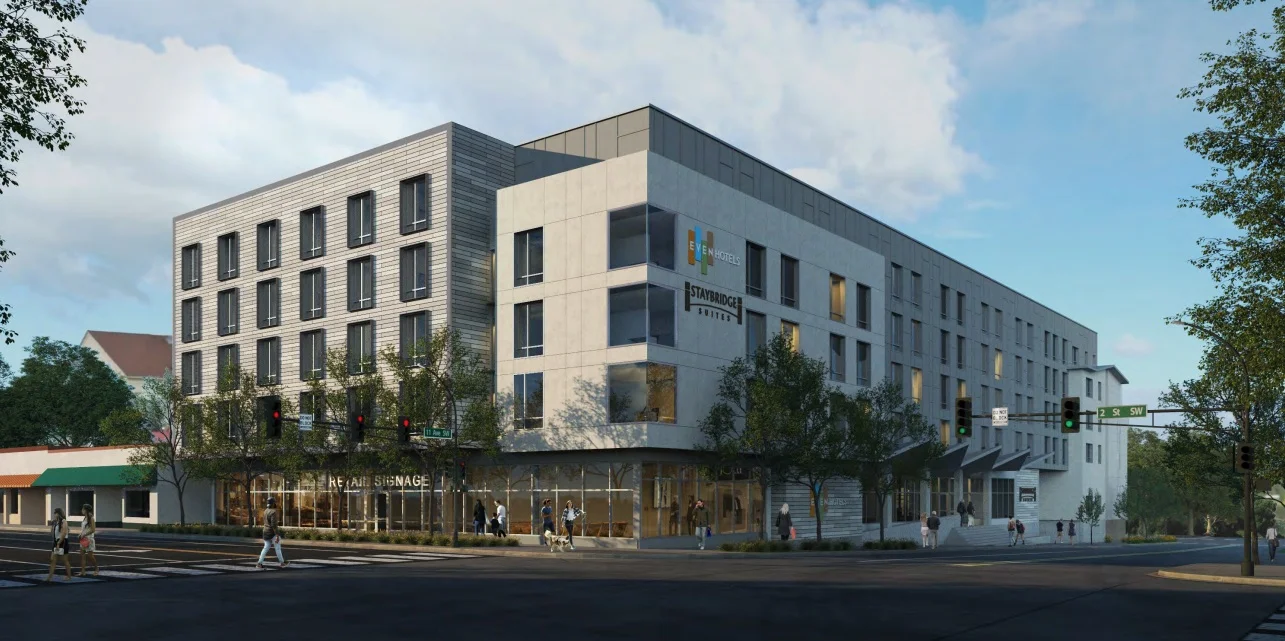'Parklet' prototype is the first step toward rethinking Historic Third Street
A ‘parklet’ is the latest concept being tested through a public-private partnership.
The City of Rochester has signed an agreement with Grand Rounds Brewing Company to construct a temporary parklet — or in this case, more like a street café — outside of its business on Historic Third Street.
The parklet will be designed to fit within three parking spaces.
As part of its deal with the city, Grand Rounds will be responsible for construction of the space, along with maintenance and insurance expenditures. In return, the city is offering Grand Rounds the right to control entry into the space during its hours of operation.
During a discussion of the proposal, council members raised concerns about allowing a private entity to control a public space. However, city administration and the business owner assured the council that the parklet would be open to the public outside of the business’s normal hours.
Council Member Nick Campion acknowledged that he still has questions about future agreements regarding the use of public space. But the city should not, he said, let not having a perfect answer stop experimentation.
“I think this is something that there could be a lot of kinks to,” said Campion. “So … let’s do a durable prototype with a local business that has been interested in trying to embrace the public space.”
The city and Grand Rounds are still in the process of drawing up a final design for the Third Street parklet. (What you see in the image above is a conceptual rendering distributed by the Rochester Downtown Alliance.)
Once constructed, it will be up for a full year. The goal is to collect feedback during the pilot phase, and then use lessons learned from the experience to draft guidelines for future parklet locations in the downtown.
“‘Pilot’ is the key word,” said Cindy Steinhauser, the city’s community development director. “We want to learn from this in terms of how to activate the street year-round.”
In addition to seeing how it impacts businesses and customers, the city will also be evaluating how the structure affects street maintenance.
Deputy City Administrator Terry Spaeth noted that the prototyping effort represents the first step toward figuring out the future of Third Street. He told the council he expects the city to begin funding the design of a reconstruction project by 2020, with work beginning by 2021-22.
“Do we remove vehicles altogether? Do we get rid of the parking on both sides and widen out the amenity zones and make it a more pedestrian friendly area and provide more opportunity for space activation in the corridor? Those are all things that will be looked at as part of that in the future,” said Spaeth, noting that there will be opportunity for future input.
While Monday night’s motion passed unanimously, there were various degrees of enthusiasm among council members.
Council President Randy Staver said he is “cautiously supportive” of the project, adding that he wants to ensure that given the relatively small area of Historic Third, there are no adverse impacts to businesses.
“I want to be careful that at some point we start to affect some of the businesses that are in that area,” said Staver.
Follow-up coverage: Neighboring pubs at odds over street café concept
Follow Sean on Twitter.
Cover graphic courtesy CRW architecture + design group








